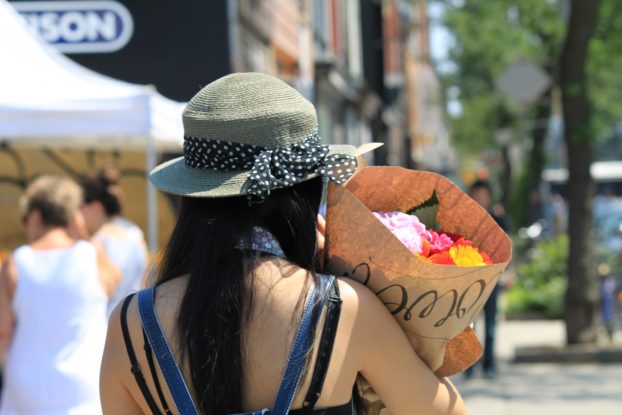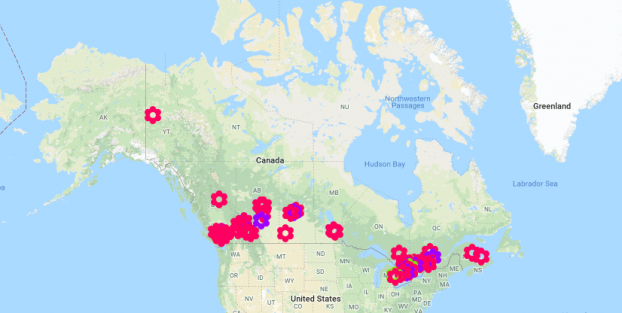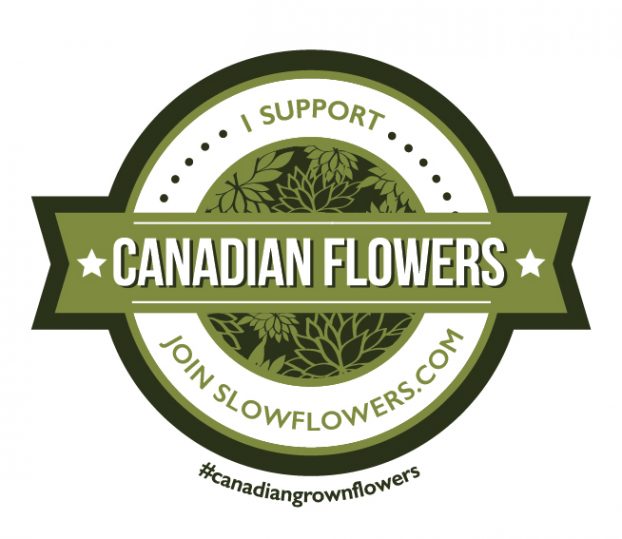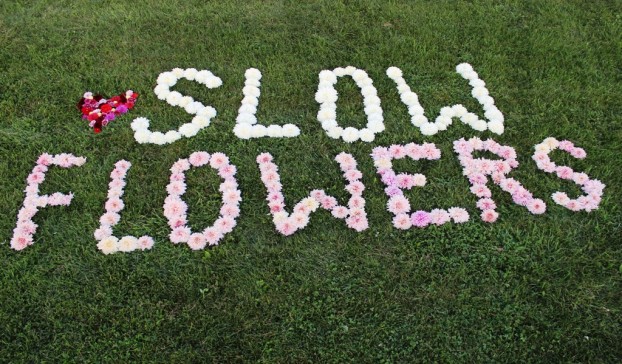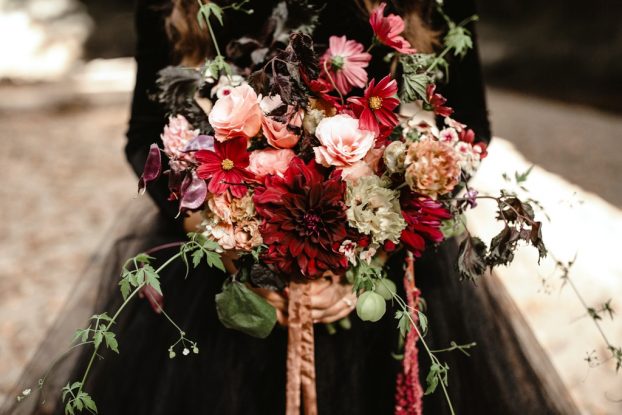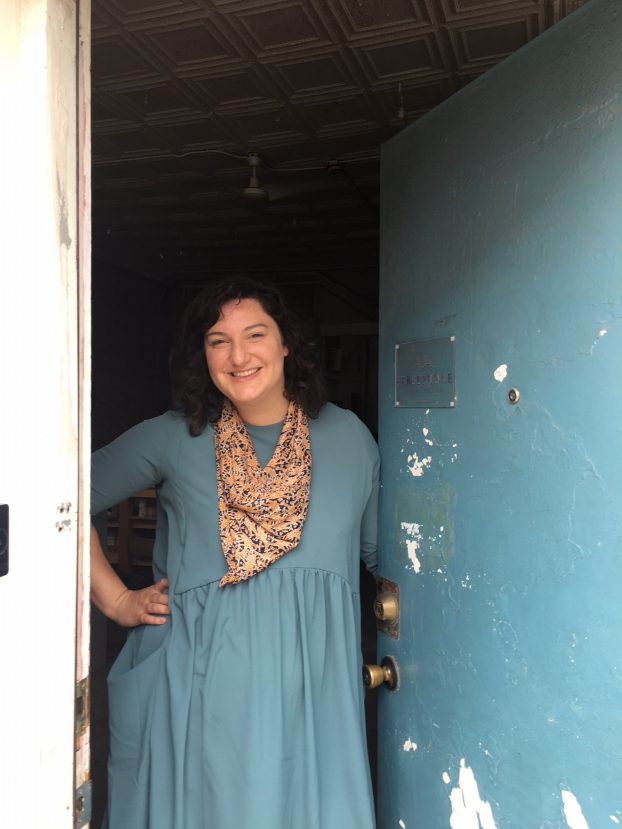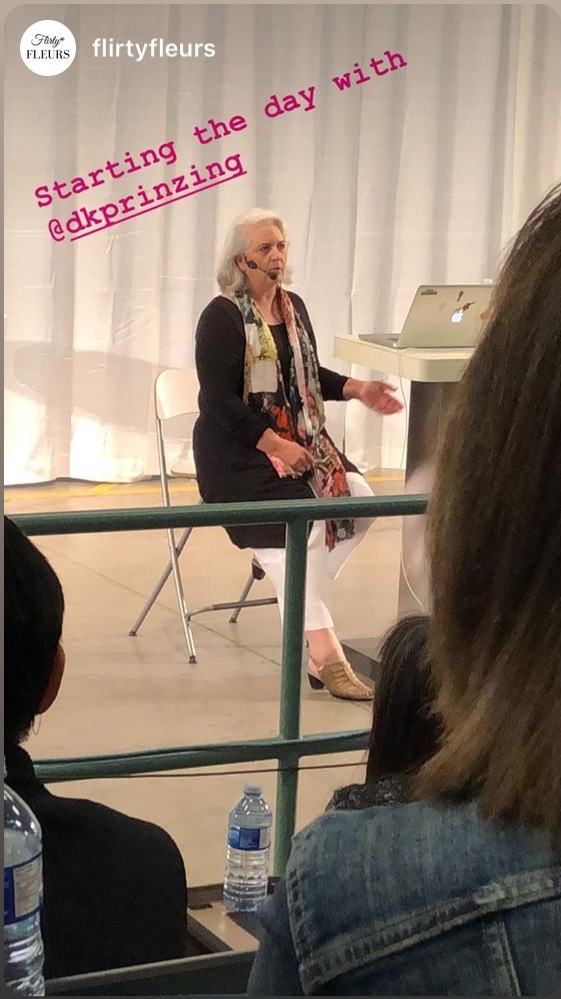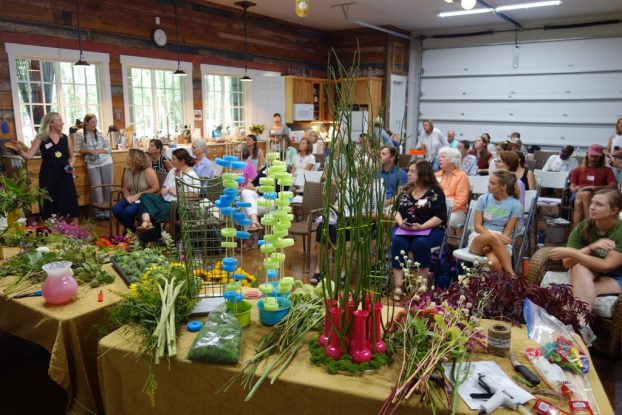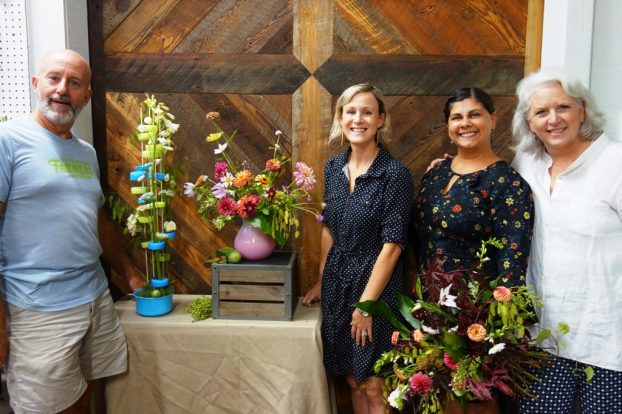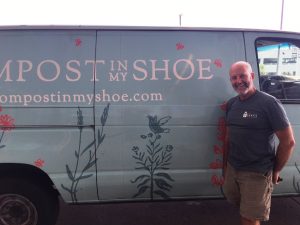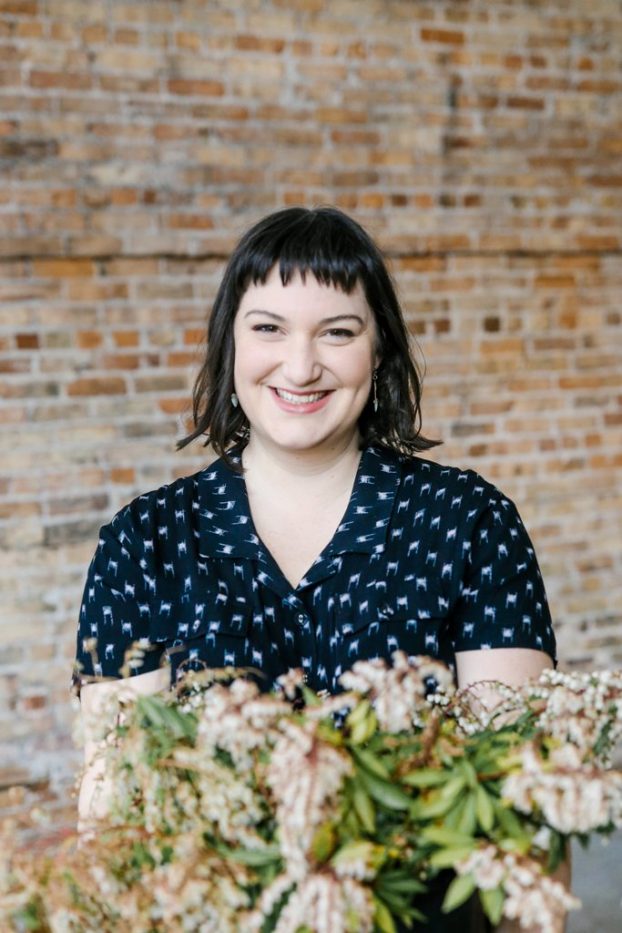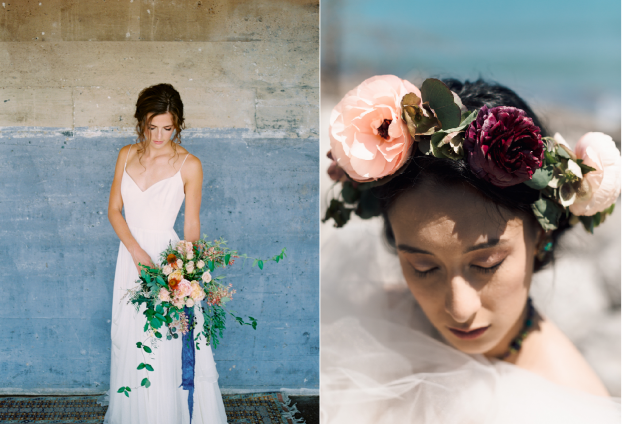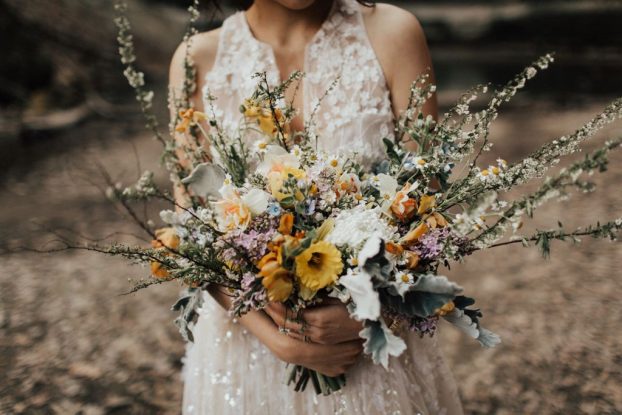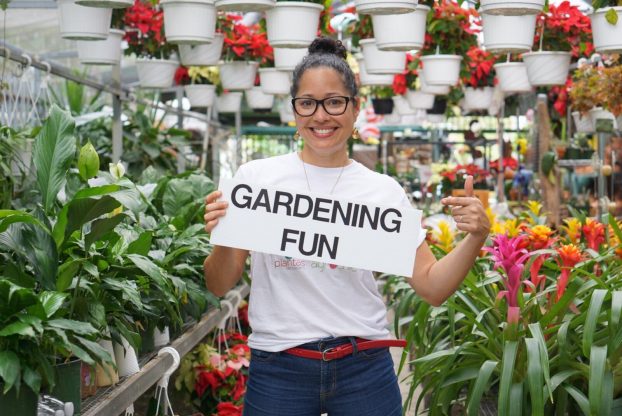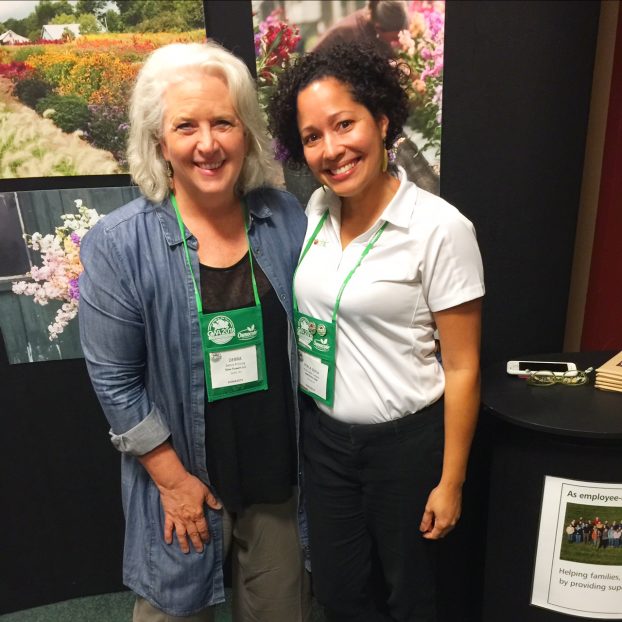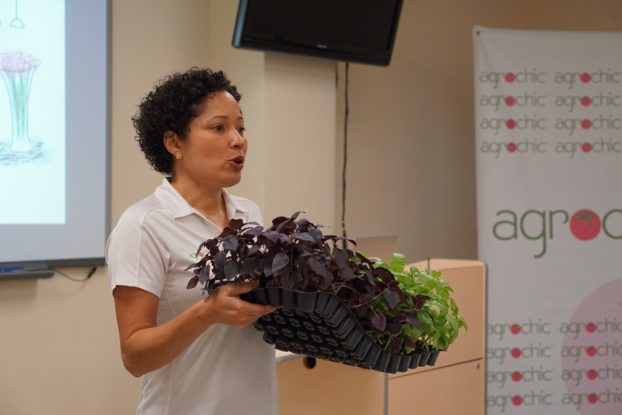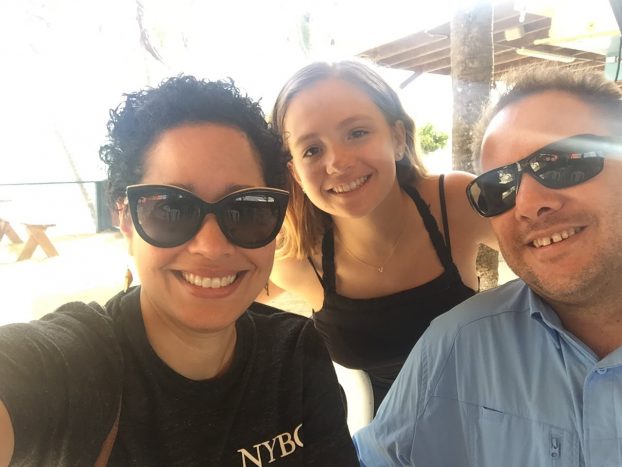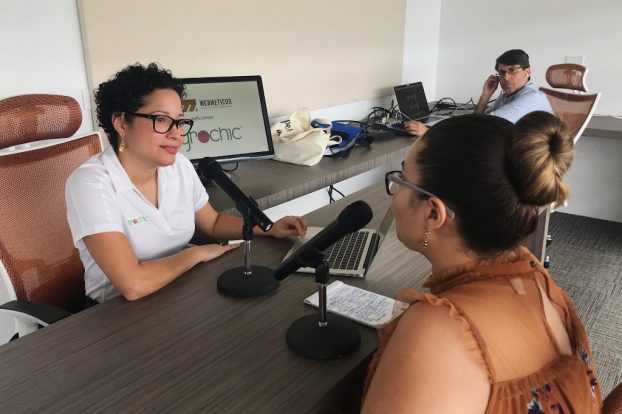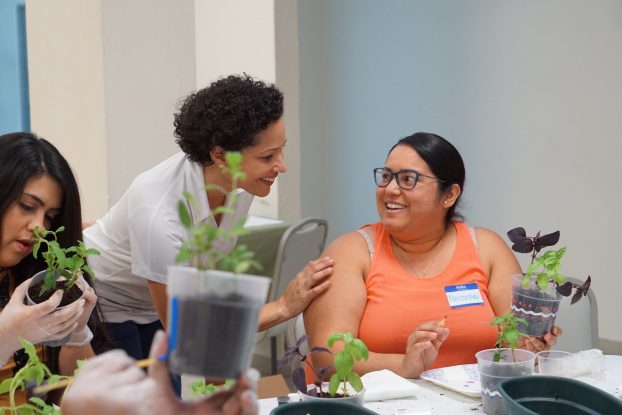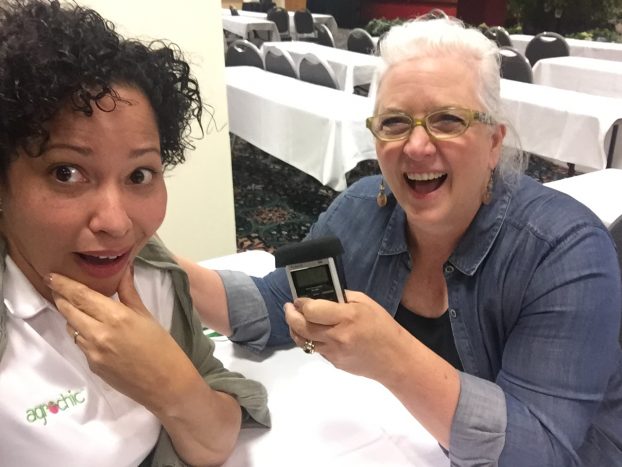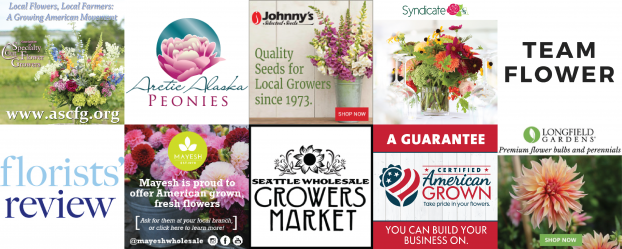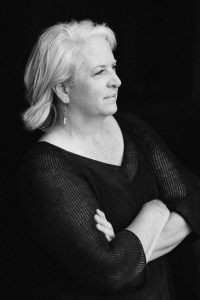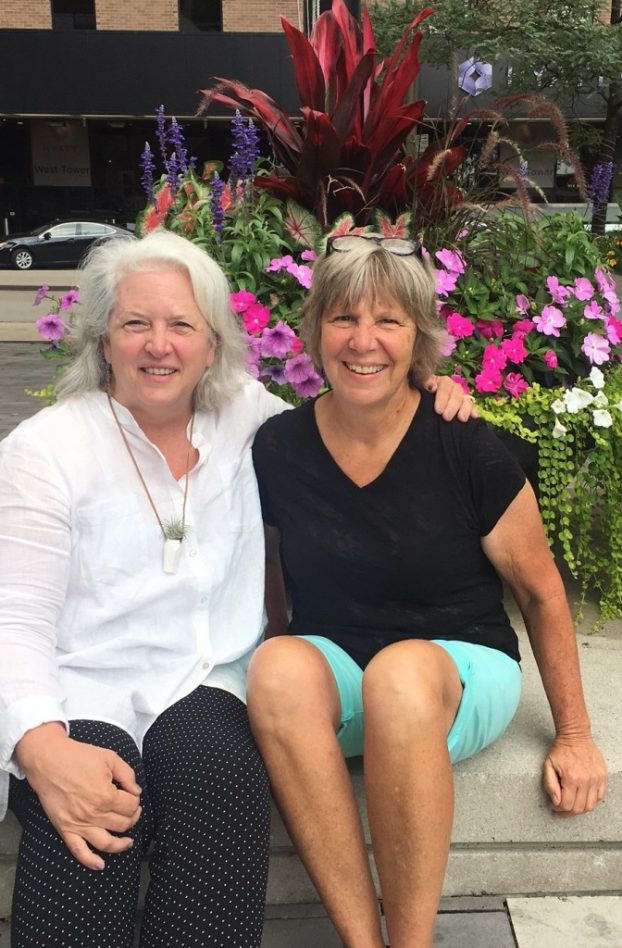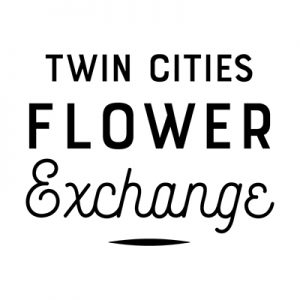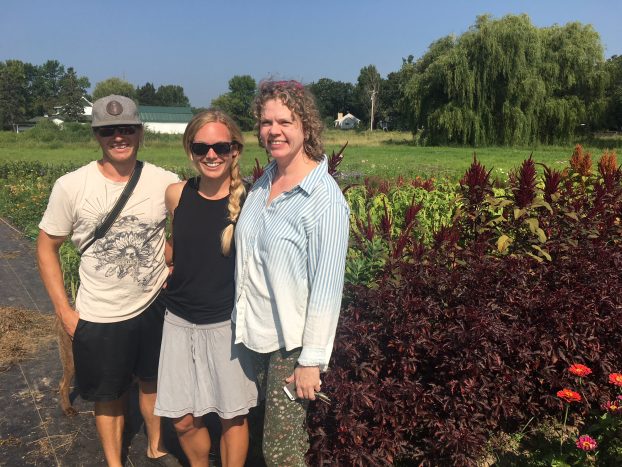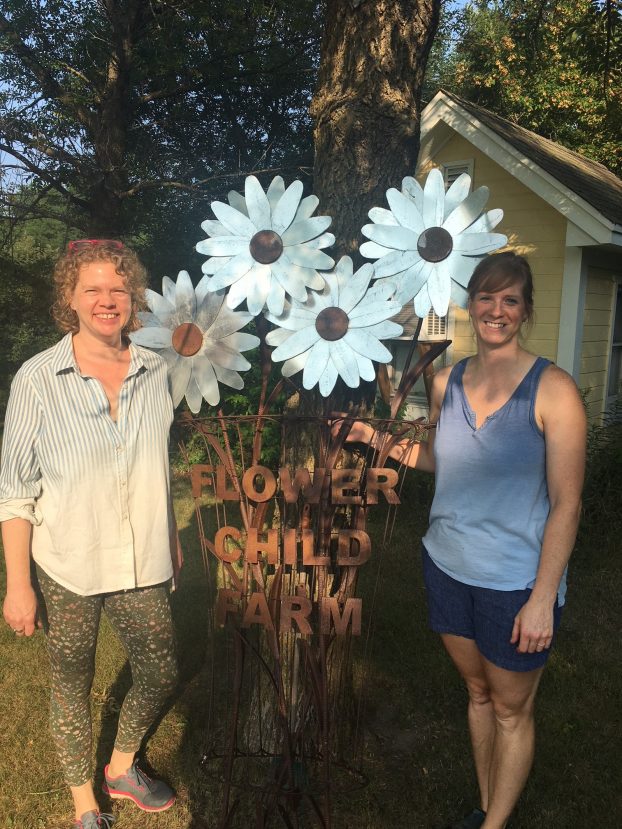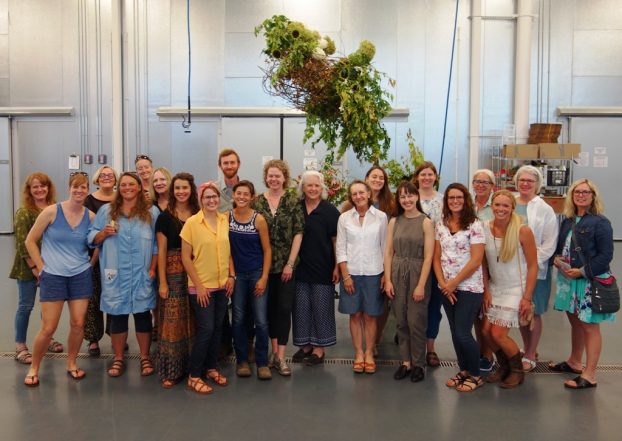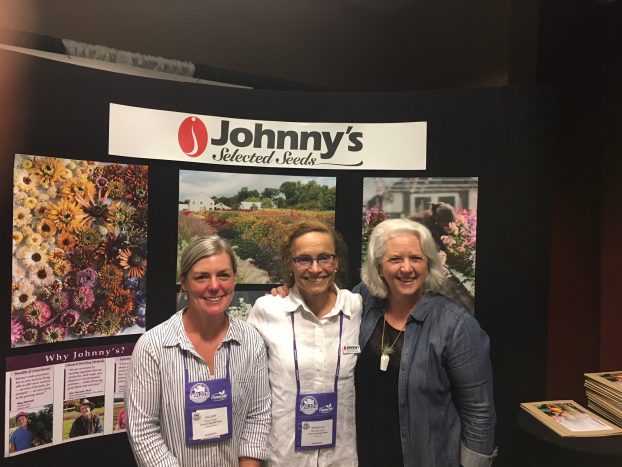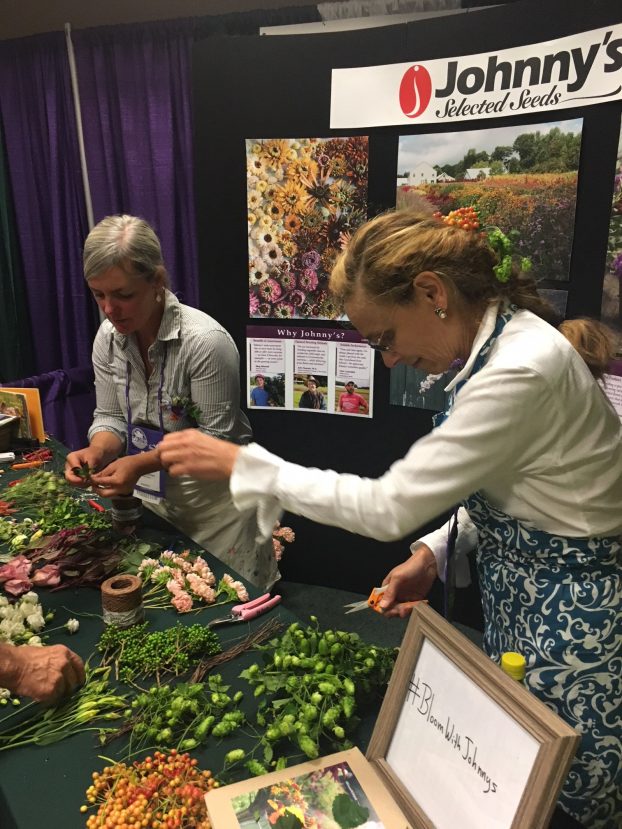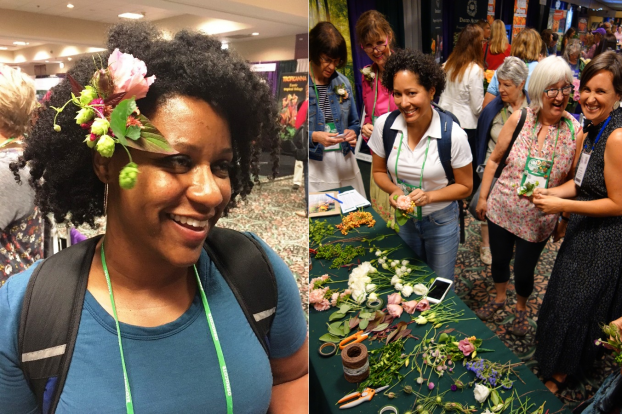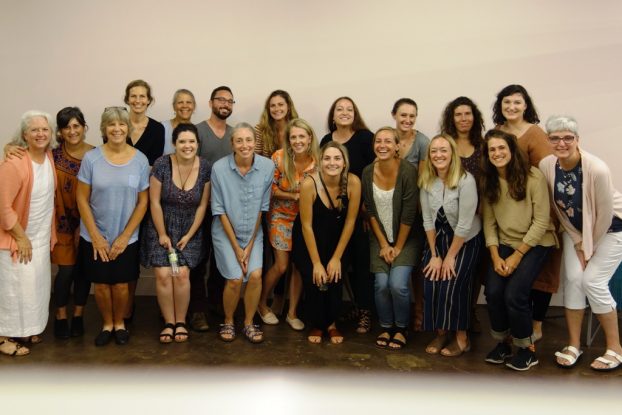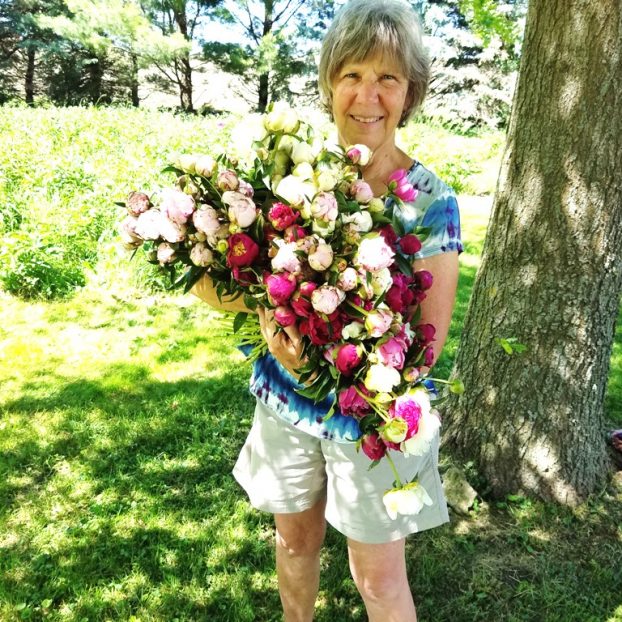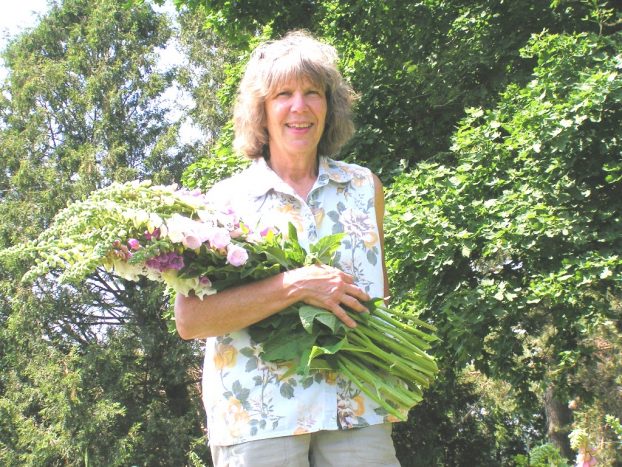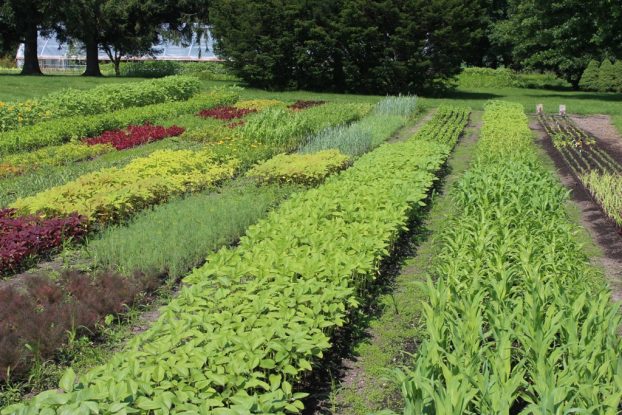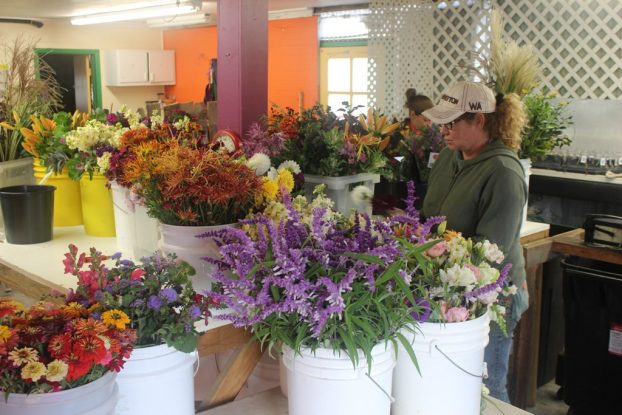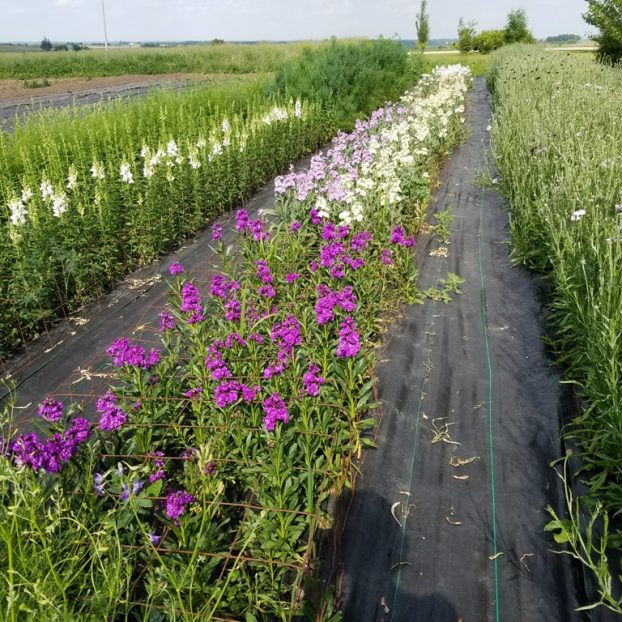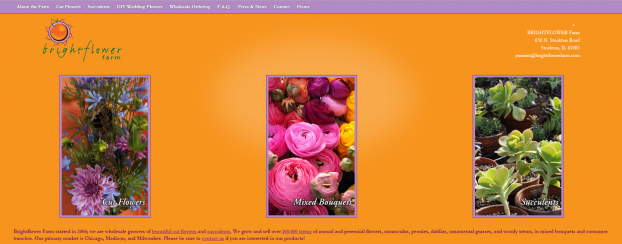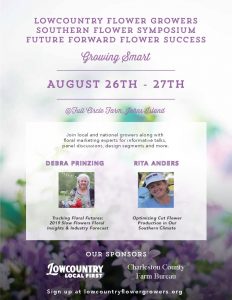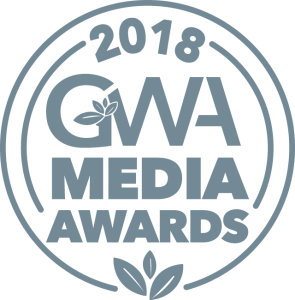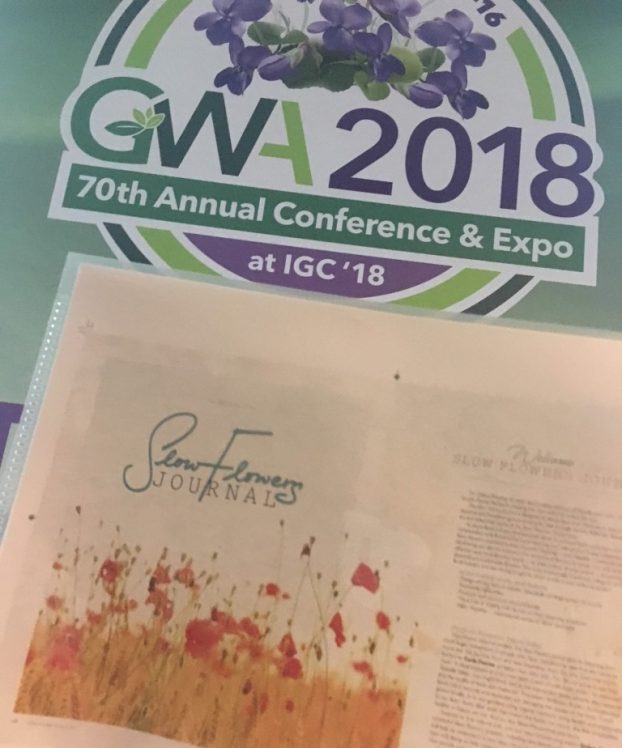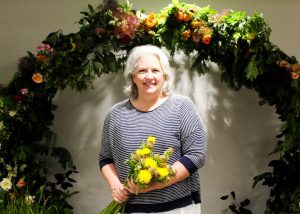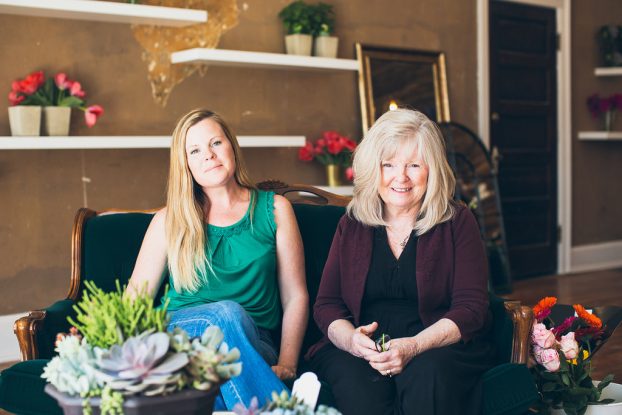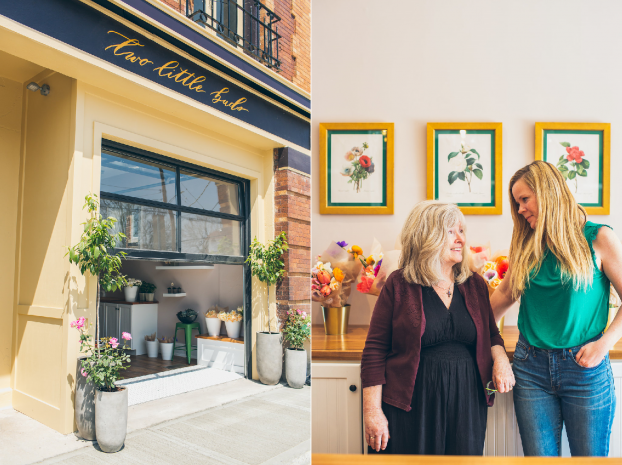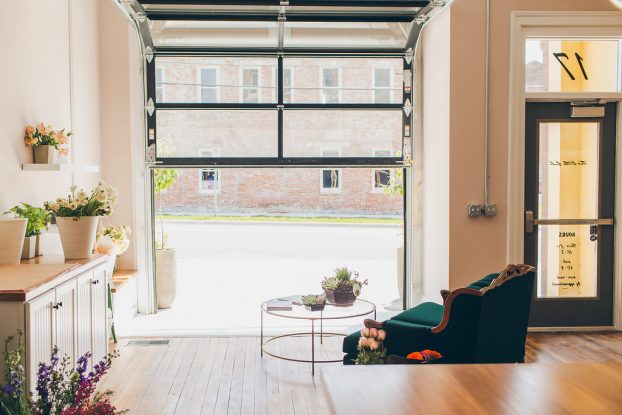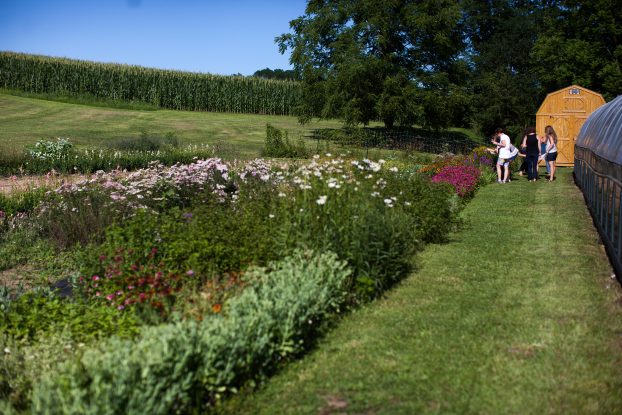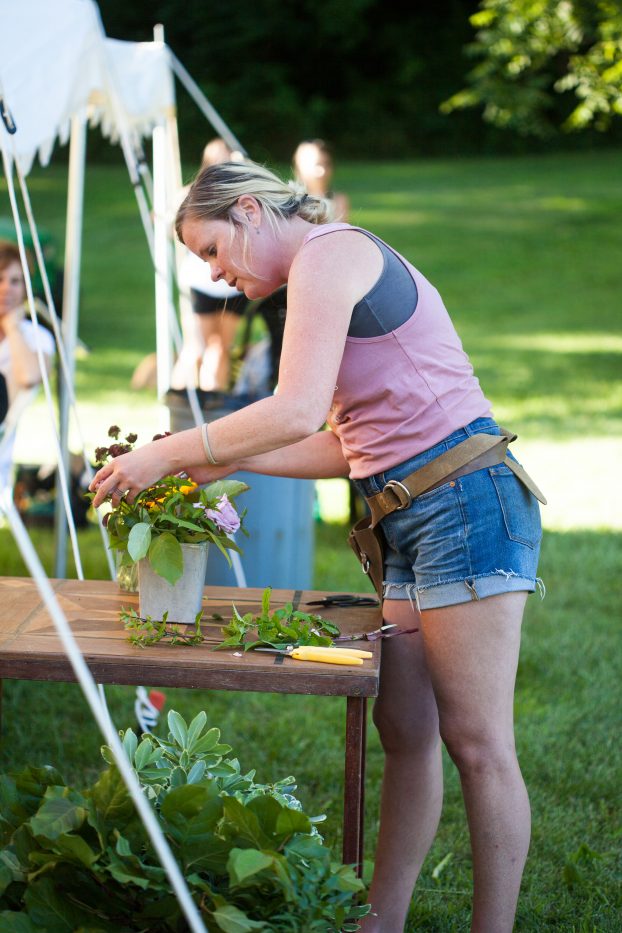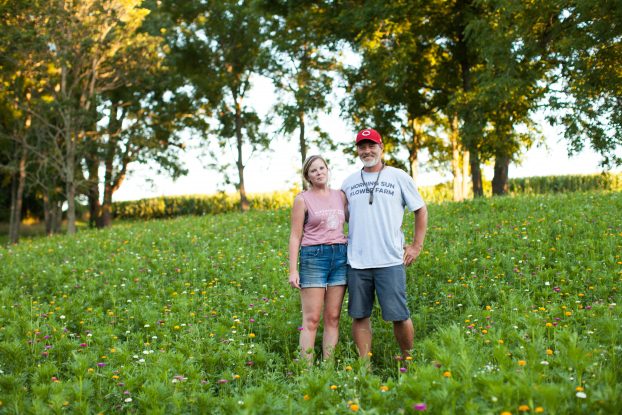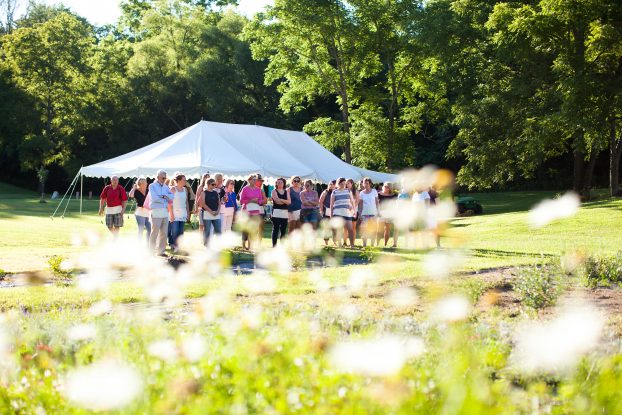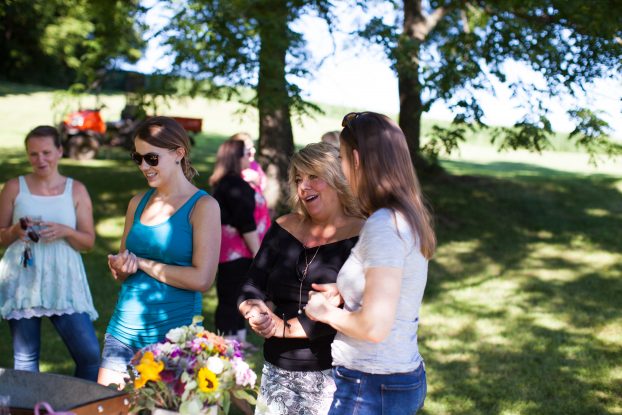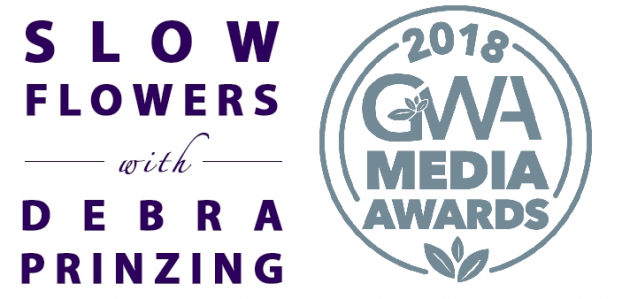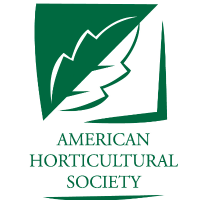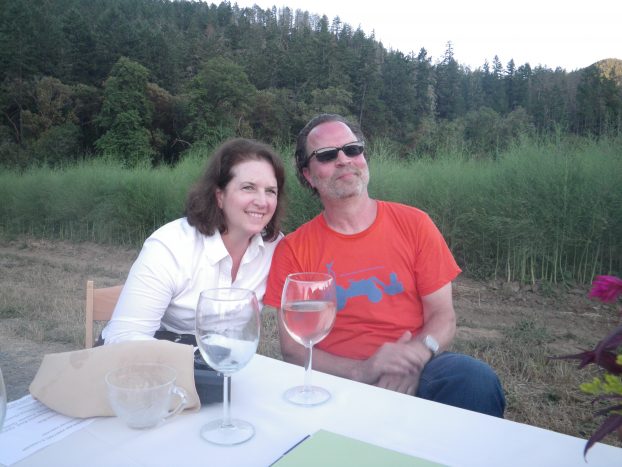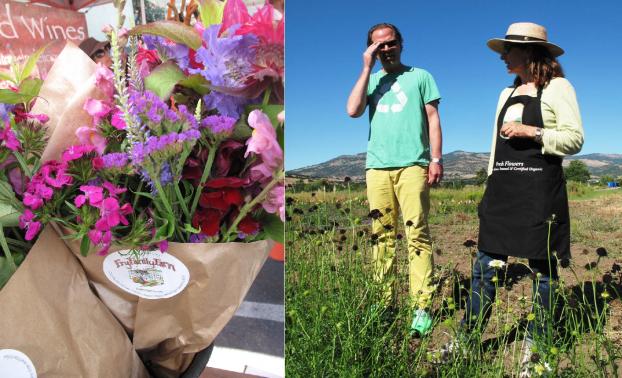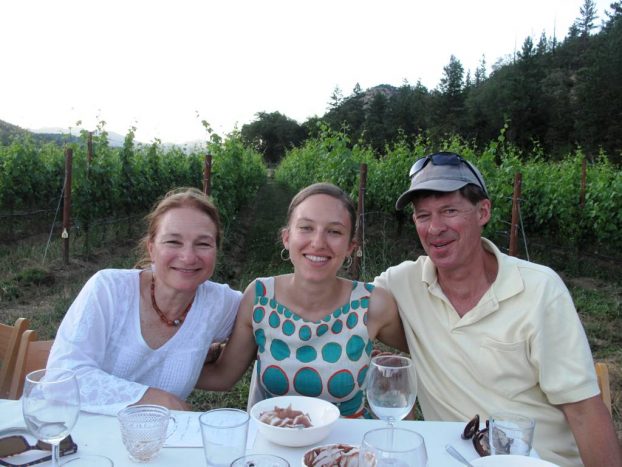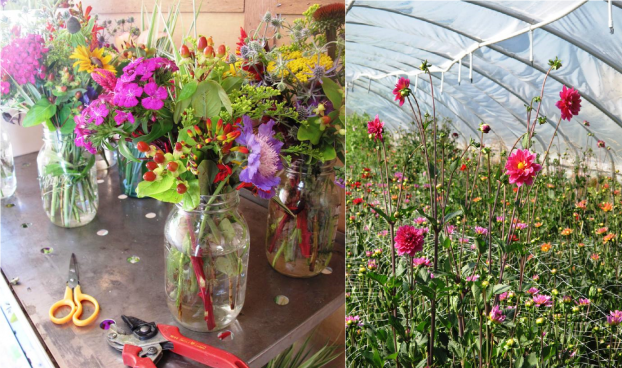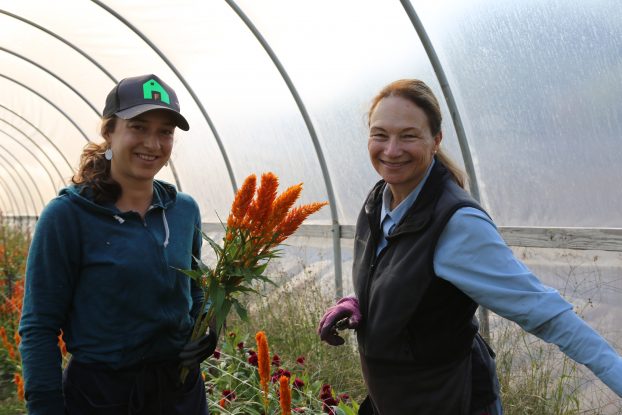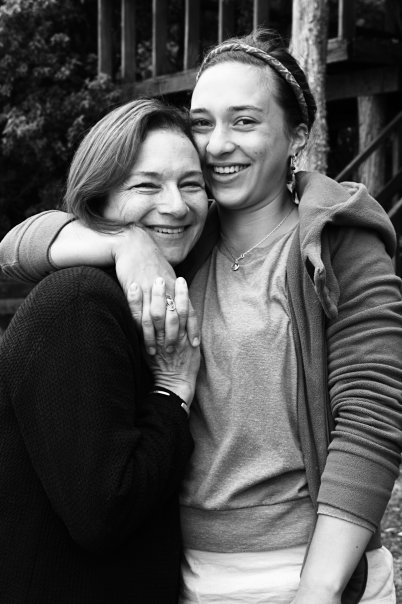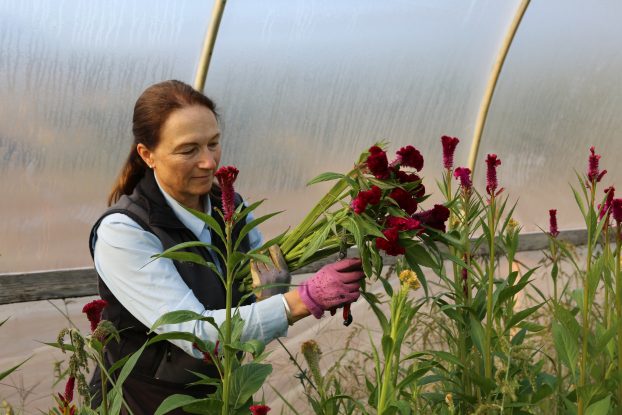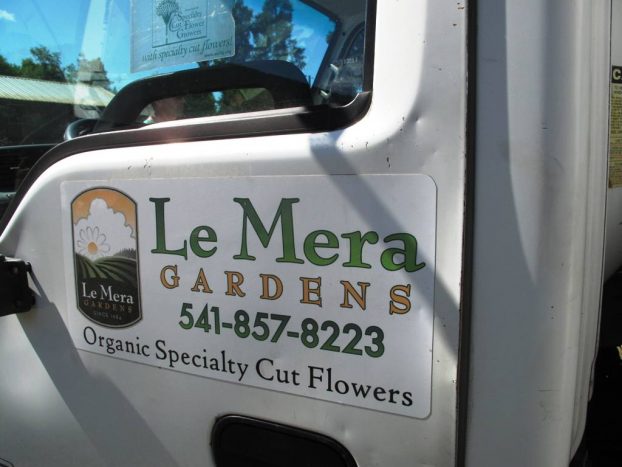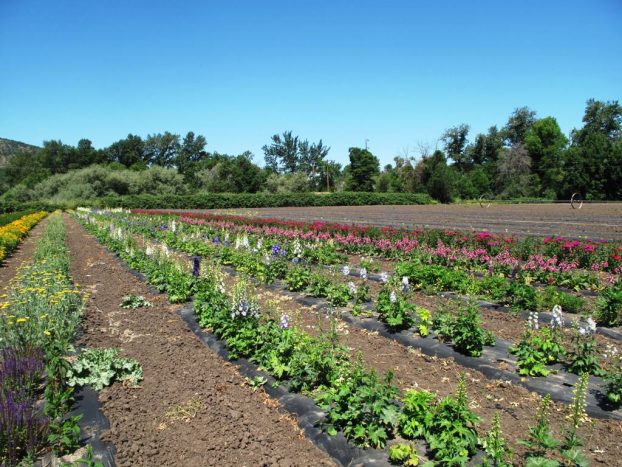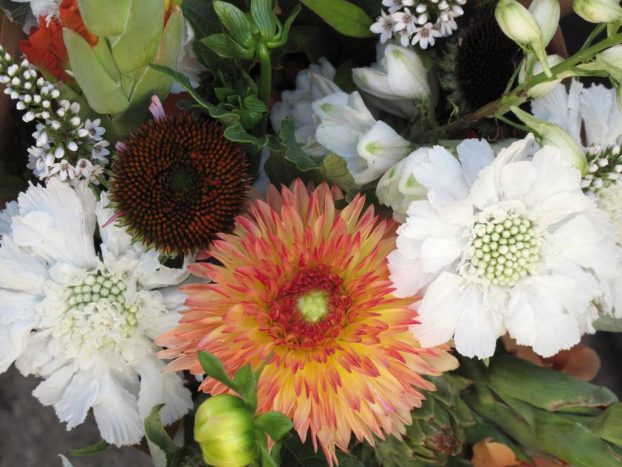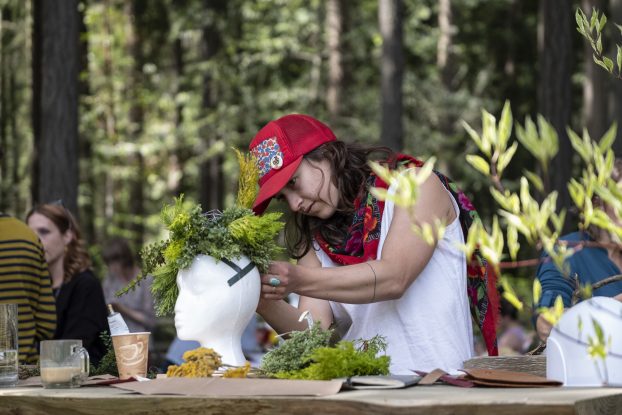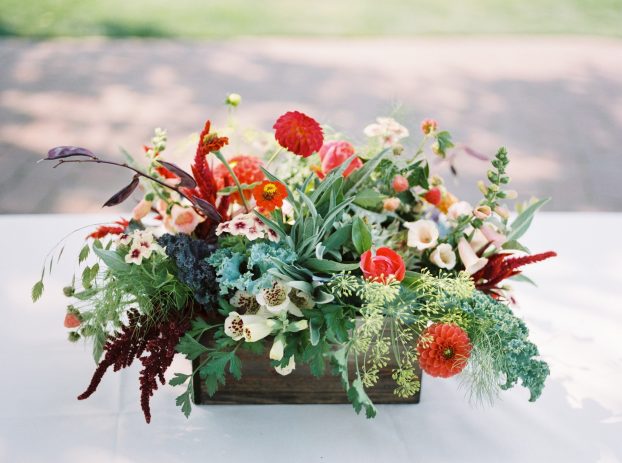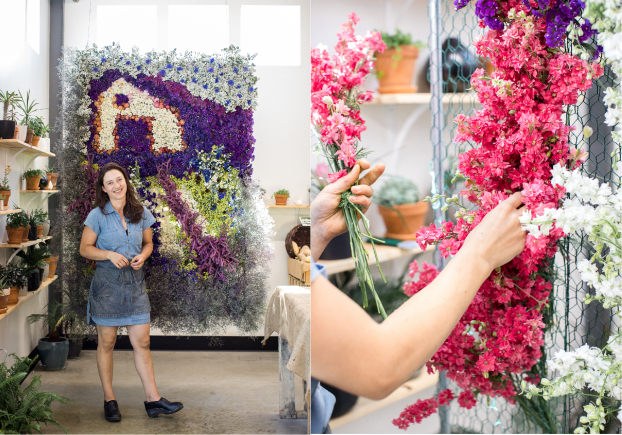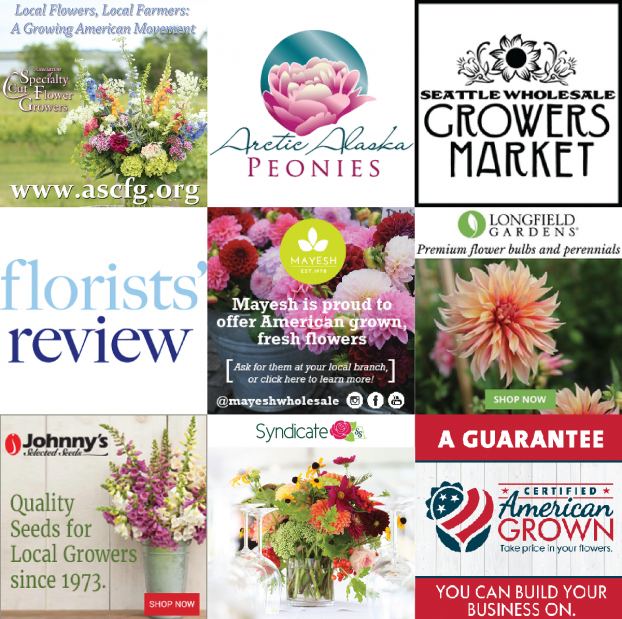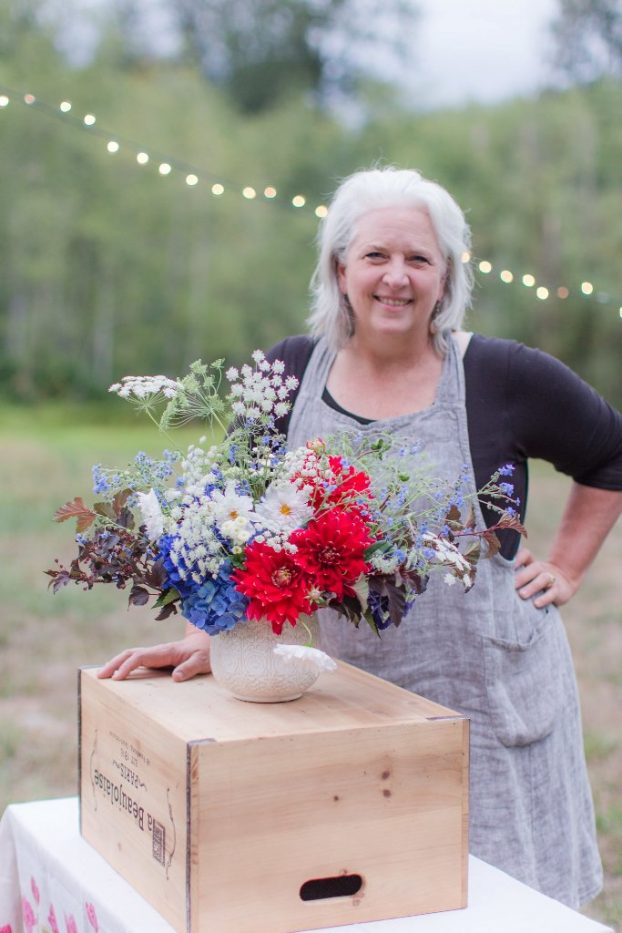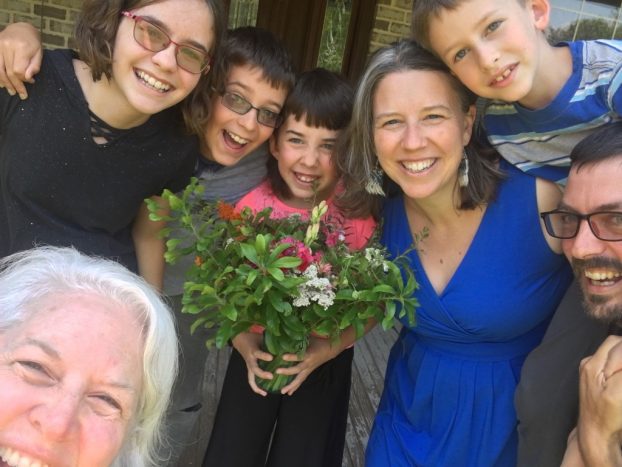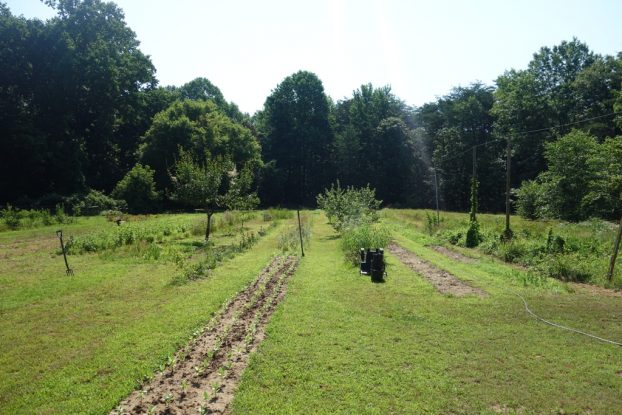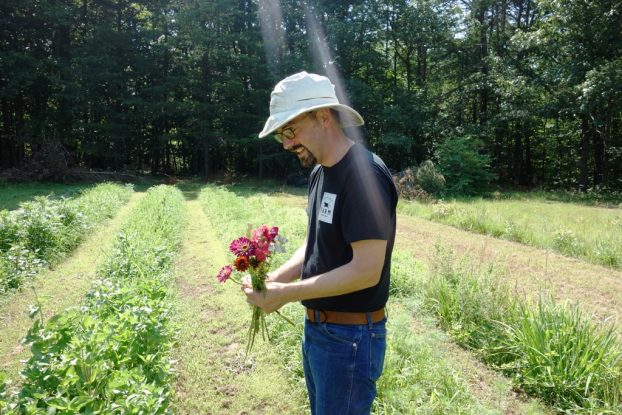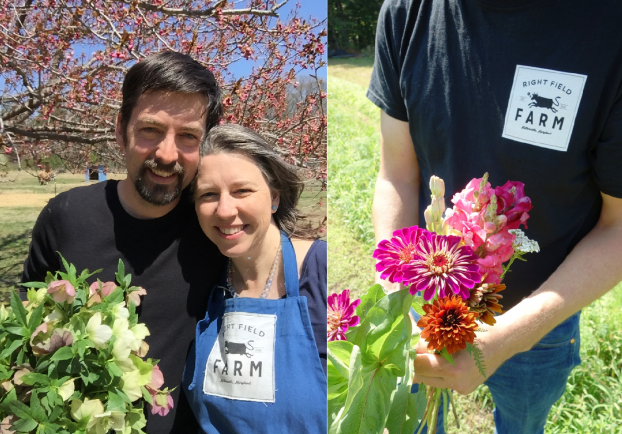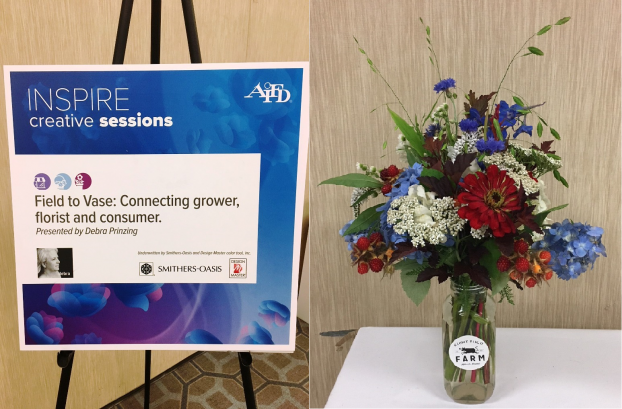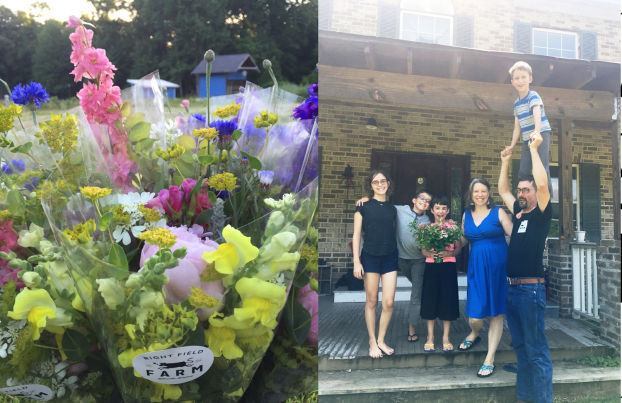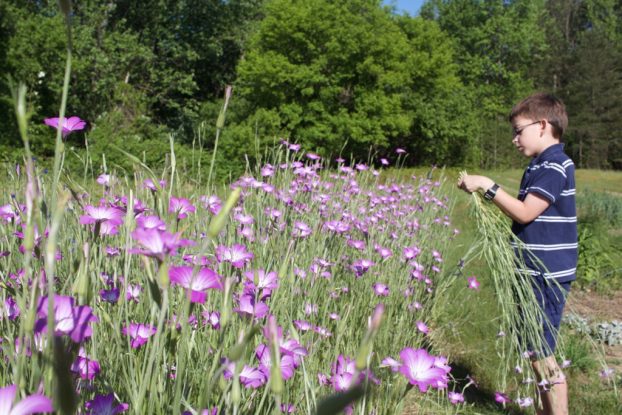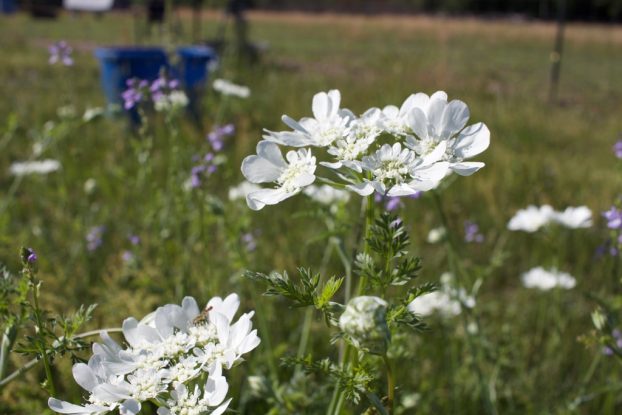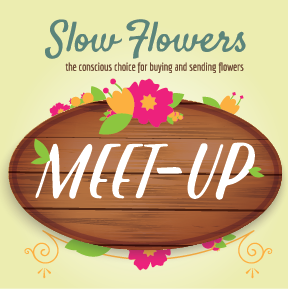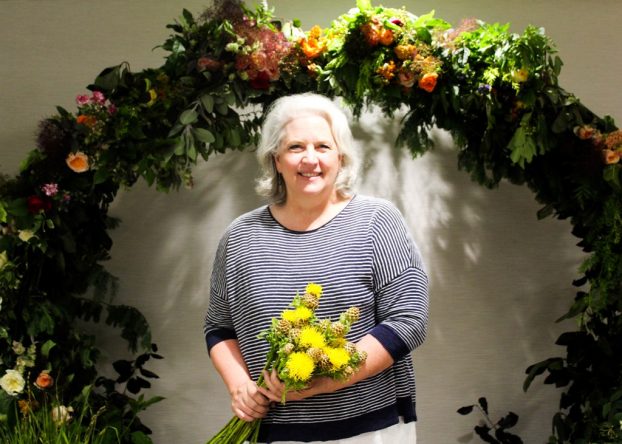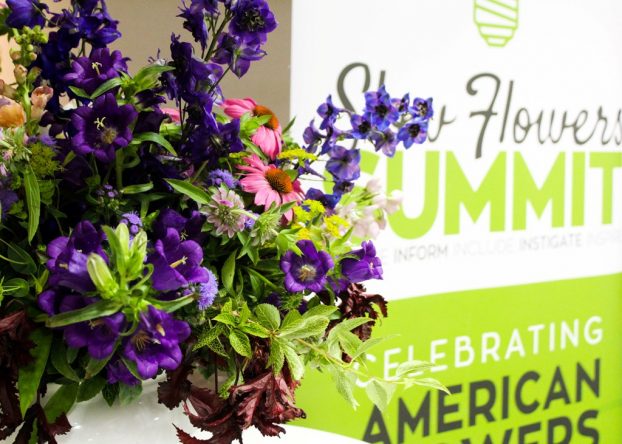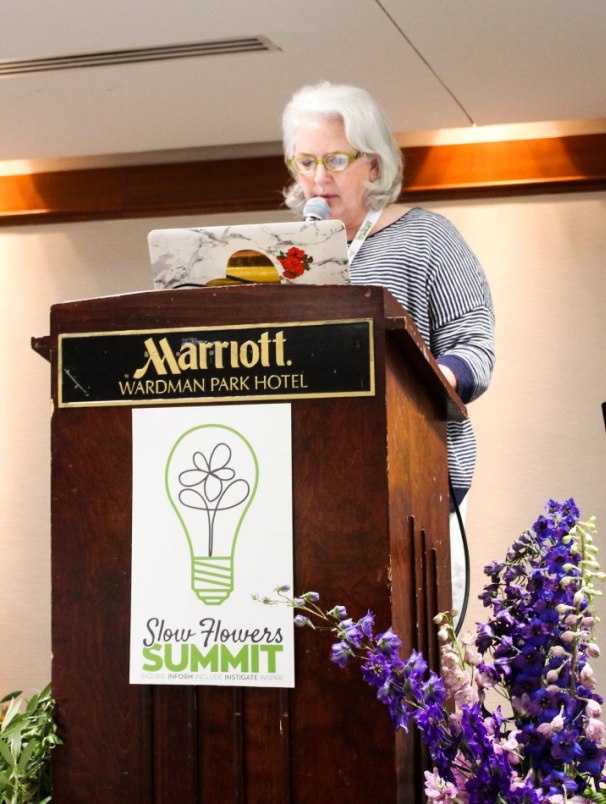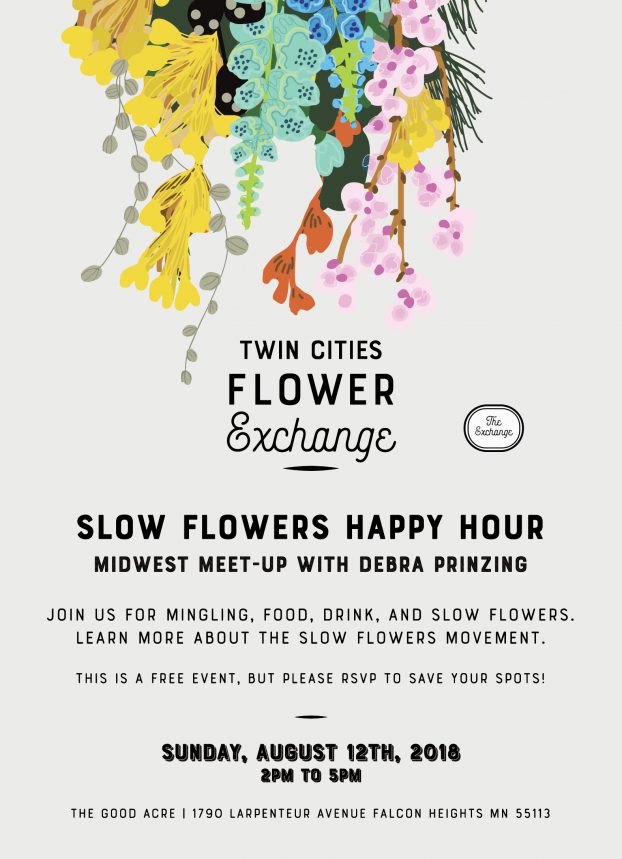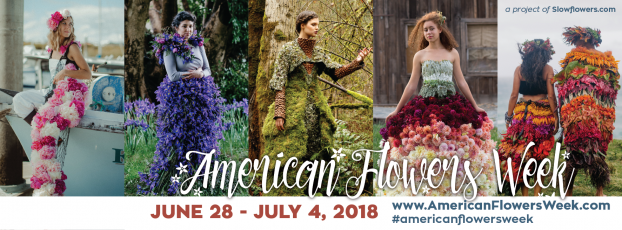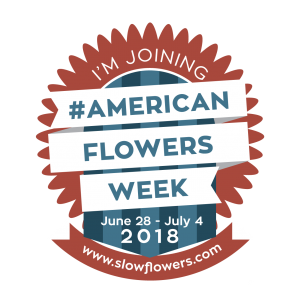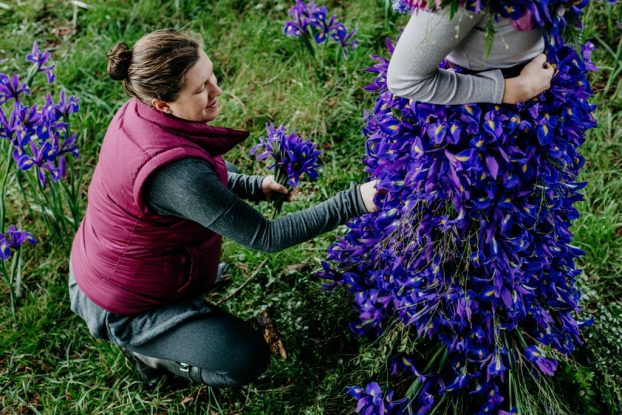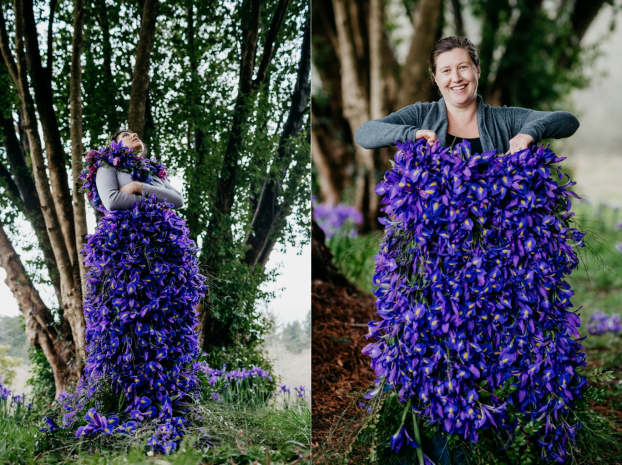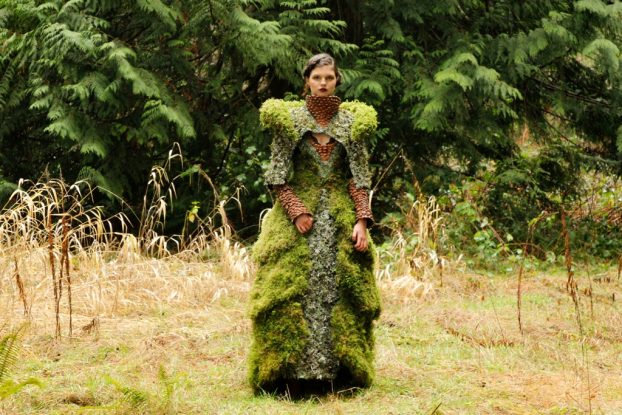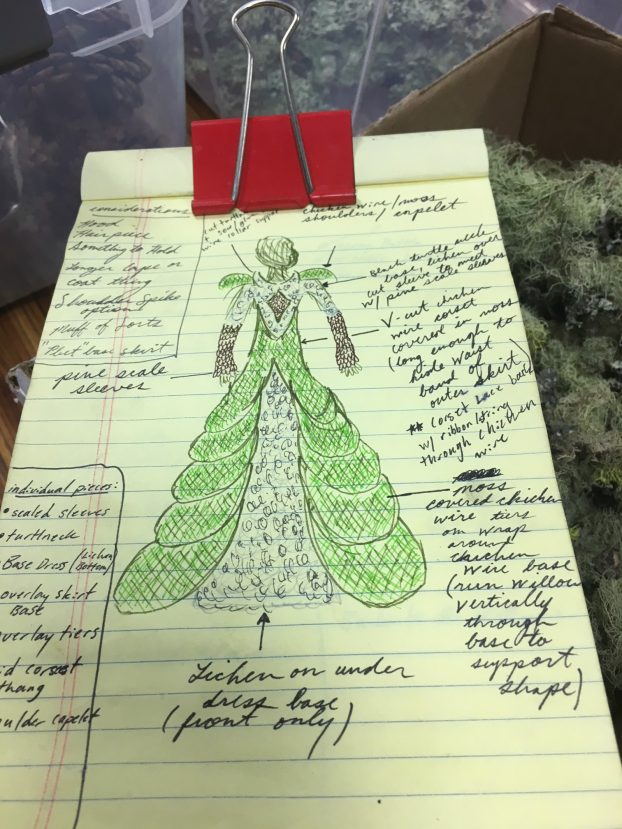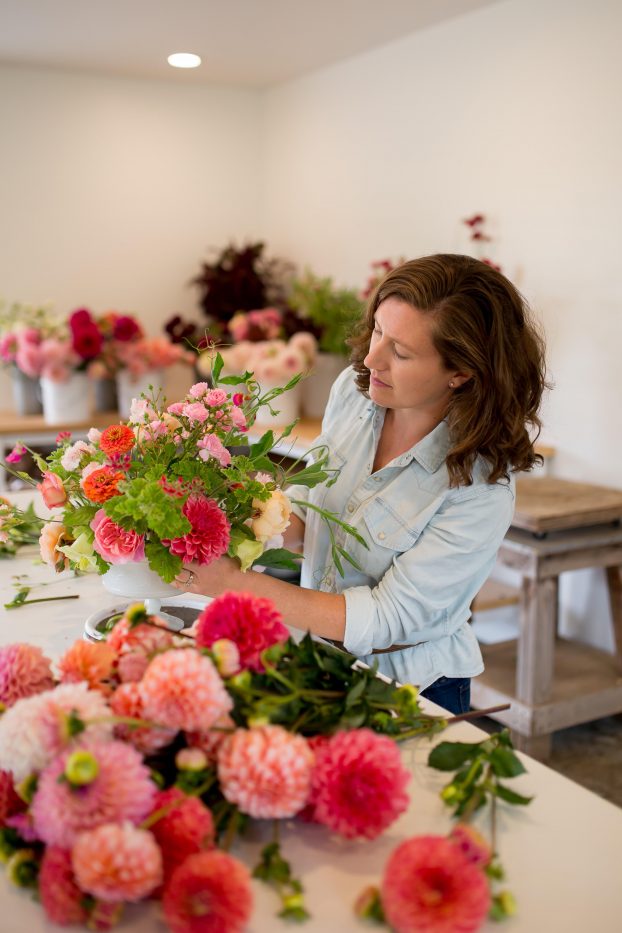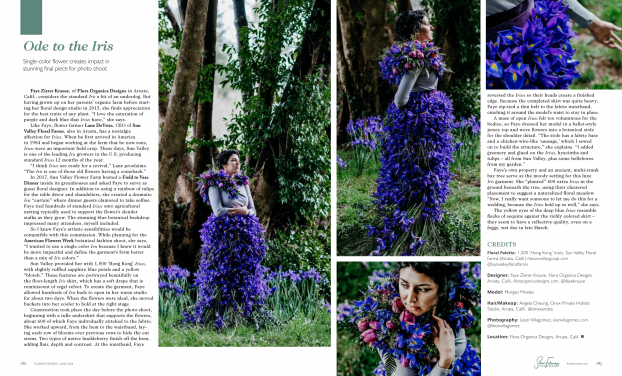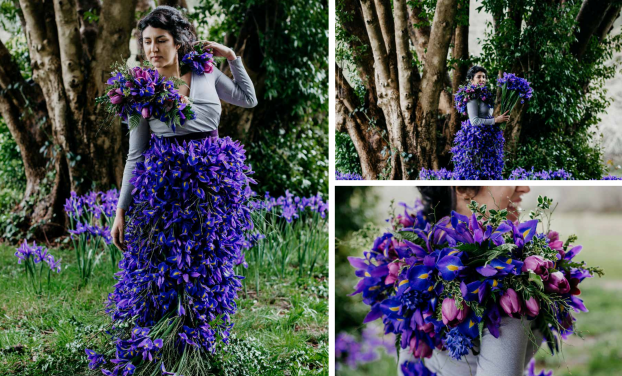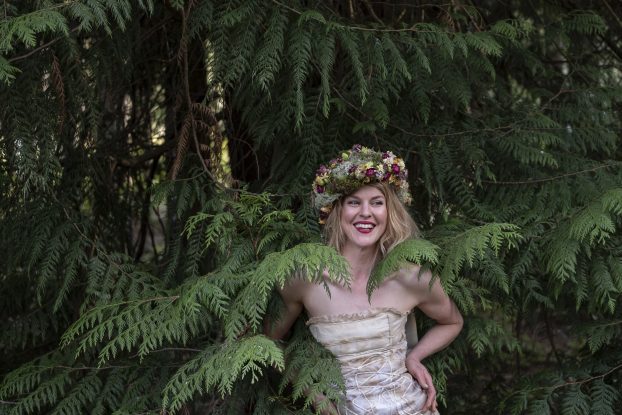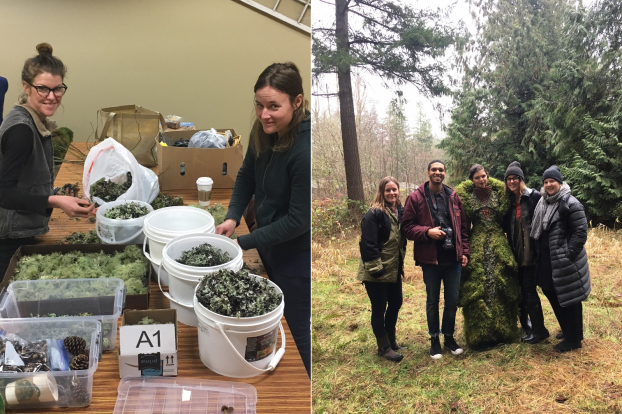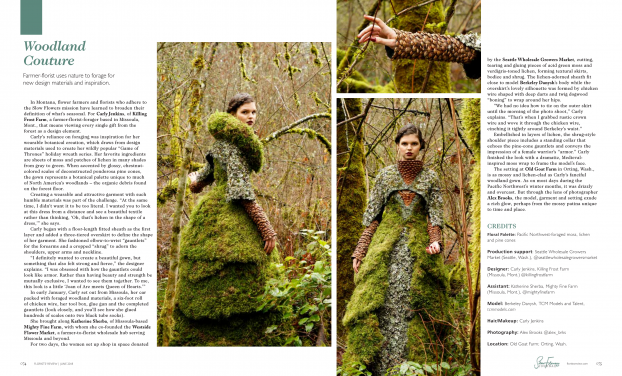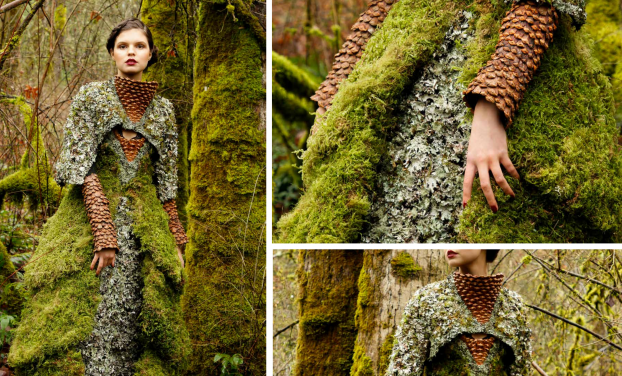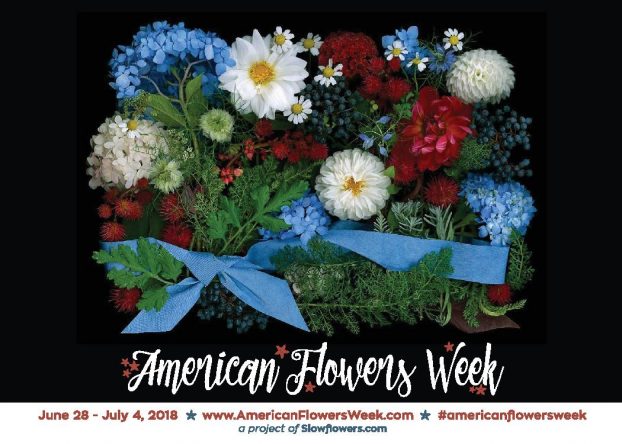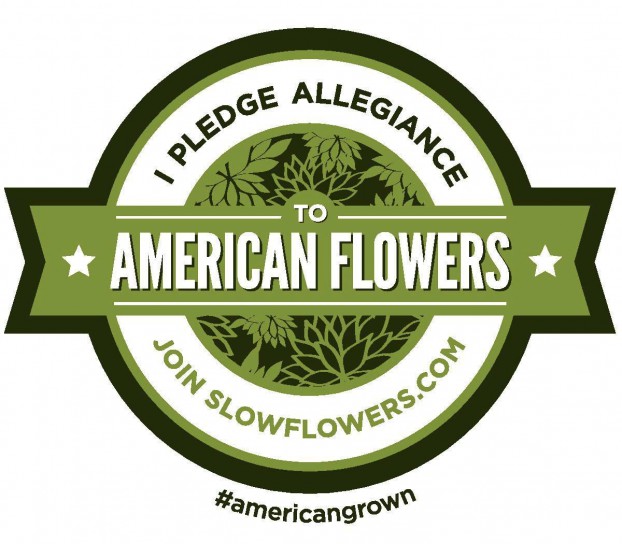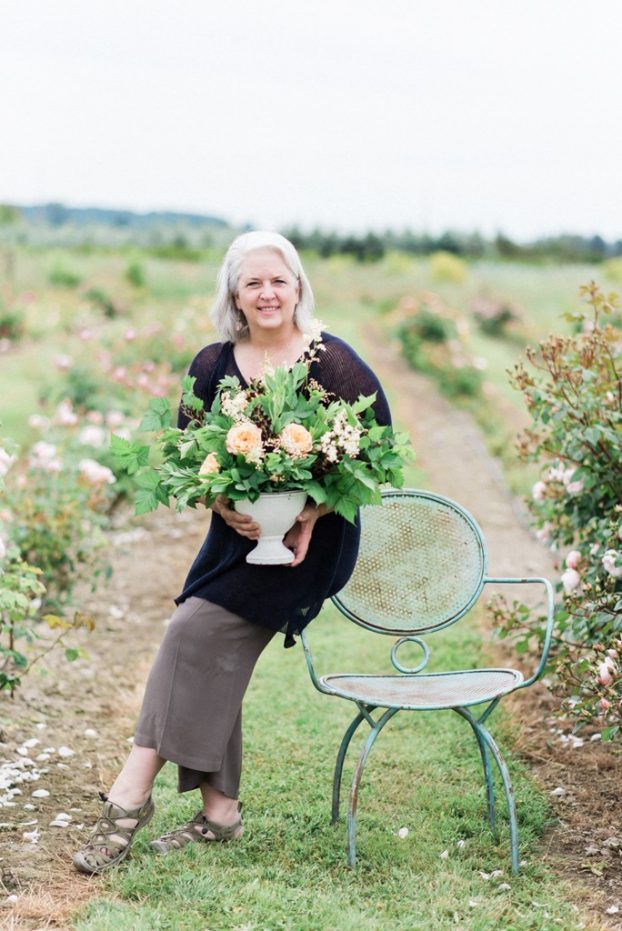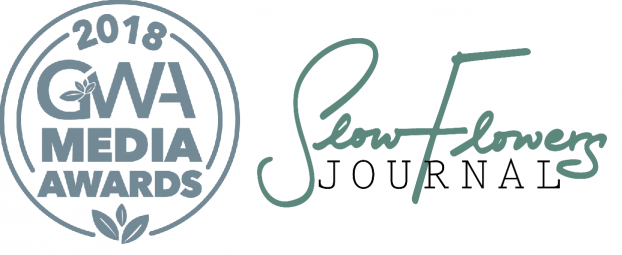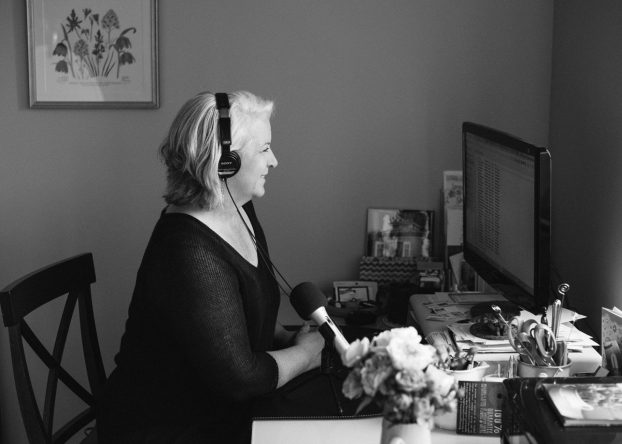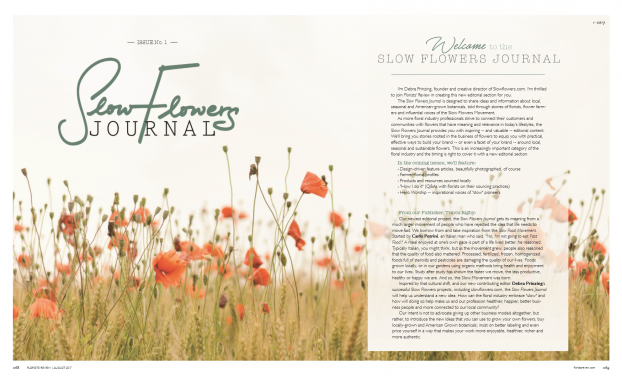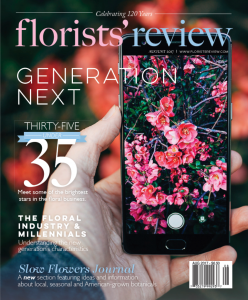Podcast: Play in new window | Download
Subscribe: Apple Podcasts | Podcast Index | RSS | More
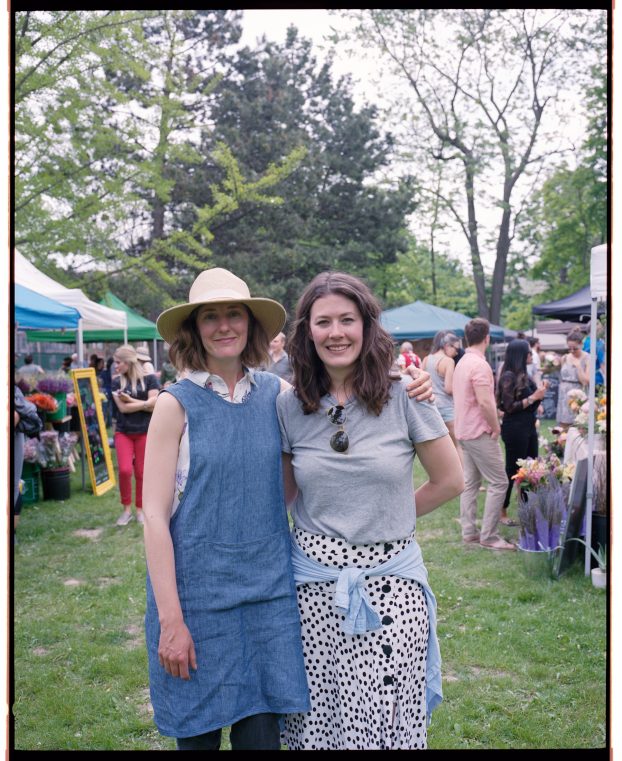
Floral designer Jessica Gale (left) with today’s Podcast guest, Natasa Kajganic (right), founder of Toronto Flower Market and Canadian Flowers Week (c) Cristian Ordonez Photography
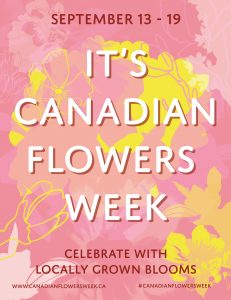 Today’s guest is Natasa Kajganic and I’m so excited to host her on this Slow Flowers Podcast Episode because together we’re celebrating the debut of Canadian Flowers Week, which begins tomorrow, September 13, and continues through September 16.
Today’s guest is Natasa Kajganic and I’m so excited to host her on this Slow Flowers Podcast Episode because together we’re celebrating the debut of Canadian Flowers Week, which begins tomorrow, September 13, and continues through September 16.
The origins of Canadian Flowers Week were a few years coming and truly began when I met Natasa last summer at the ASCFG regional meeting in Ontario, Canada.
After a morning of flower farm tours, we gathered at La Primavera Farms in Dundas, outside Toronto, for a series of presentations, one of which was from Natasa. I’d long been wanting to connect with her in a meaningful way, as I’d heard so much about this truly original thinker who created Toronto Flower Market in 2013.
Toronto Flower Market is an outdoor flower and plant market that has become the city’s dynamic botanical hub for flower farmers, designers, and lovers of fresh, local and seasonal blooms. As founder of this botanical emporium, Natasa’s aim has been to bring focus to the local flower industry through inspiring public floral experiences.
I loved hearing Natasa’s presentation about the formation of Toronto Flower Market and after we met in person, we agreed to speak later by phone to brainstorm whether American Flowers Week could help bring Canadian Flowers Week to life.
Much as I was nurtured and encouraged in 2015 by Helen Evans and others involved in British Flowers Week, I wanted to “pay back” a flower sister by encouraging Natasa and by sharing my experiences.
Fast-forward less than one year later and Canadian Flowers Week is here, as a project of Toronto Flower Market.
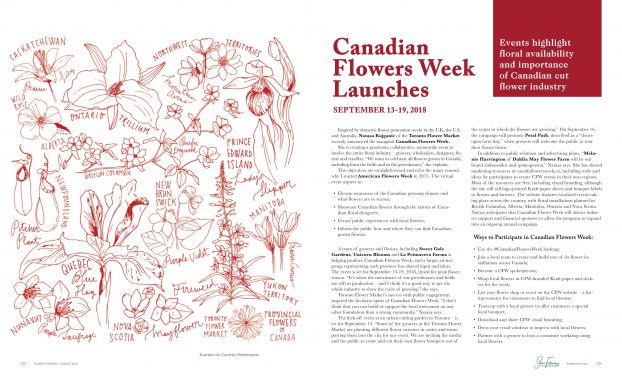
Florists’ Review and the Slow Flowers Journal featured this new Canadian floral holiday in the August issue.
I’m so excited that you can hear from Natasa in person as she describes the participants and activities of this week-long celebration stretching across Canada, including activities in all provinces and 20 public events.
Here are the opening lines that appear on the beautiful new web site, Canadianflowerweek.ca:
Locally grown, Canadian blooms are as abundant and diverse as our natural landscape. Growers embrace the challenges that come along with four seasons and provide a range of flowers all year round. From long-lasting, sturdy, big-headed blooms to delicate, full-of-scent flowers that could never survive the travel of imports, our greenhouse and field crops are fresh and awe-inspiring. And now, for one week, the flower industry across the country will unite to celebrate and showoff its beautiful bounty.
I’ve added links to my two recent articles that appeared in the August 2018 Slow Flowers Journal inside the pages of Florists’ Review.
The first is about Toronto Flower Market, called “The Flowering of Toronto,” which you can download here.
The second is all about Canadian Flowers Week, featuring an interview with Natasa Kajganic.
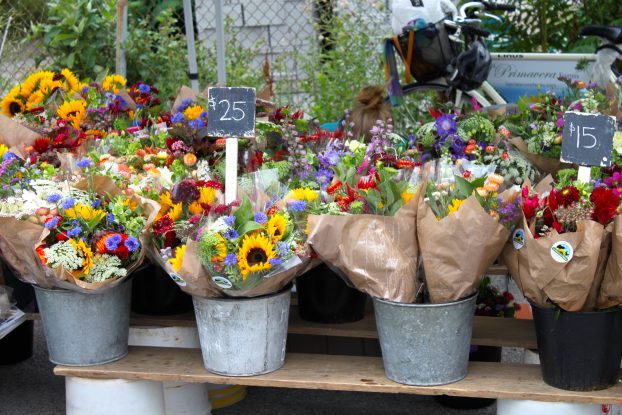 Fresh, local and seasonal blooms at Toronto Flower Market. The Market will host Canadian Flowers Week events on Saturday, September 15th.
Fresh, local and seasonal blooms at Toronto Flower Market. The Market will host Canadian Flowers Week events on Saturday, September 15th.
While I launched American Flowers Week as a program of Slow Flowers in 2015, and as we are gearing up for our 5th year as the original domestic flower promotion holiday in the U.S., I have to reflect on the meaning of community.
That undertaking would not have gained traction and support without the involvement of people along the entire floral continuum — from seeds and plants to growers, marketers, retailers, designers and floral consumers.
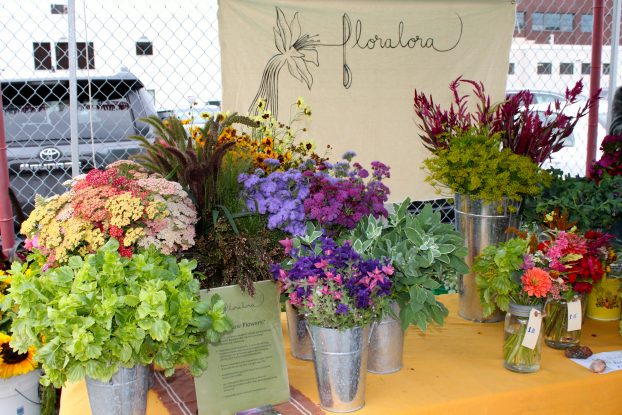
Flowers from Floralora, a Slow Flowers member based in Ontario, on display at Toronto Flower Market.
Similarly, Natasa has acknowledged her core team of creatives and fellow floral professionals who are helping make Canadian Flowers Week a reality.
I’m so touched that the site includes a link to Slow Flowers and a mention of American Flowers week as key “partners” in this program, along with the Association of Specialty Cut Flower Growers, the Ecological Farmers Association of Ontario and several other supporting organizations and businesses.
I wish them a fabulous kickoff as they continue to change the conversation around local, seasonal and domestic flowers in Canada.
Follow Canadian Flowers Week on Instagram
 Similarly, I am so grateful to you — and to our entire community of flower farmers and floral designers who together define the Slow Flowers Movement. As our cause gains more supporters and more passionate participants who believe in the importance of the American cut flower industry, the momentum is contagious.
Similarly, I am so grateful to you — and to our entire community of flower farmers and floral designers who together define the Slow Flowers Movement. As our cause gains more supporters and more passionate participants who believe in the importance of the American cut flower industry, the momentum is contagious.
I know you feel it, too. I value your support and invite you to show your thanks and with a donation to support my ongoing advocacy, education and outreach activities. You can find the donate button in the column to the right.
The Slow Flowers Podcast has been downloaded more than 358,000 times by listeners like you.
Thank you for listening, commenting and sharing – it means so much.
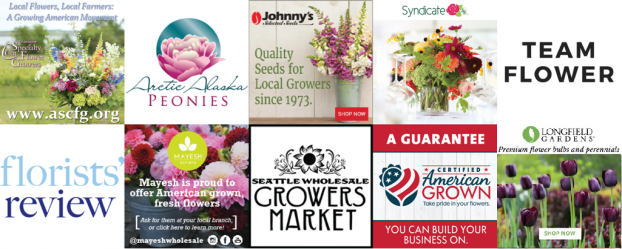 Thank you to our sponsors who have supported Slow Flowers and all our programs.
Thank you to our sponsors who have supported Slow Flowers and all our programs.
Arctic Alaska Peonies, a cooperative of passionate family farms in the heart of Alaska providing bigger, better peony flowers during the months of July and August. Visit them today at arcticalaskapeonies.com
Seattle Wholesale Growers Market, a farmer-owned cooperative committed to providing the very best the Pacific Northwest has to offer in cut flowers, foliage and plants. The Growers Market’s mission is to foster a vibrant marketplace that sustains local flower farms and provides top-quality products and service to the local floral industry. Find them at seattlewholesalegrowersmarket.com
Longfield Gardens provides home gardeners with high quality flower bulbs and perennials. Their online store offers plants for every region and every season, from tulips and daffodils to dahlias, caladiums and amaryllis. Visit them at longfield-gardens.com.
Syndicate Sales, an American manufacturer of vases and accessories for the professional florist. Look for the American Flag Icon to find Syndicate’s USA-made products and join the Syndicate Stars loyalty program at syndicatesales.com.
Johnny’s Selected Seeds, an employee-owned company that provides our industry the best flower, herb and vegetable seeds — supplied to farms large and small and even backyard cutting gardens like mine. Check them out at johnnysseeds.com.
Association of Specialty Cut Flower Growers. Formed in 1988, ASCFG was created to educate, unite, and support commercial cut flower growers. It mission is to help growers produce high-quality floral material, and to foster and promote the local availability of that product. Learn more at ascfg.org
Mayesh Wholesale Florist. Family-owned since 1978, Mayesh is the premier wedding and event supplier in the U.S. and we’re thrilled to partner with Mayesh to promote local and domestic flowers, which they source from farms large and small around the U.S. Learn more at mayesh.com.
Certified American Grown Flowers. The Certified American-Grown program and label provide a guarantee for designers and consumers on the source of their flowers. Take pride in your flowers and buy with confidence, ask for Certified American Grown Flowers. To learn more visit americangrownflowers.org.
And the Team Flower Conference – a professional floral event where flower lovers from all over the world gather for networking, learning, and celebration. It’s a special time for the floral industry to come together and whether you’re a farmer, designer, wholesaler, or just love flowers, you’re invited to attend as Team Flowers dreams big for the industry’s future. Head to teamflower.org/slowflowers to learn more about the 2019 conference in Waco, Texas!
I’m Debra Prinzing, host and producer of the Slow Flowers Podcast.
Next week, you’re invited to join me in putting more American grown flowers on the table, one vase at a time. And If you like what you hear, please consider logging onto iTunes and posting a listener review.
The content and opinions expressed here are either mine alone or those of my guests alone, independent of any podcast sponsor or other person, company or organization.
The Slow Flowers Podcast is engineered and edited by Andrew Brenlan. Learn more about his work at soundbodymovement.com.









